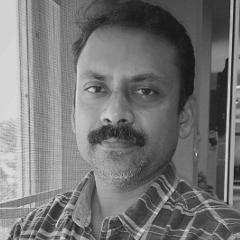Buddhadeb Bhattacharjee: A thorough gentleman, too altruistic to be a politician

Mail This Article
"West Bengal just suffered an unimaginable loss, which the state will as realise only much later," was how Nirmalya Chatterjee, a senior government official in Kolkata, reacted to the news of the demise of former Chief Minister Buddhadeb Bhattacharjee. His statement summed up what the doyen of the Left politics meant for his followers. Nirmalya was one of the first government recruits after Bhattacharjee assumed the state's premiership in 2000.
Even at the turn of the millennium, proper work timings or duty schedules for government staffers were unheard of. Bhattacharjee's decision to adhere strictly to the 10.15 am-5.15 pm government office timings was a sign of his vision to bring about a change in the state of affairs in West Bengal. "He was a good administrator and a gentleman to work with," Nirmalya remembered. Inexorably, that was also a sign of discontent that would blow up among a larger spectrum of government workers and the state polity. A thorough statesman, Bhattacharjee found it tough to push forward his ambitious initiatives and developmental projects through the chaotic political atmosphere.

For most Bengalis, Bhattacharjee was "a sweet, simple gentleman; a culturally proficient and a knowledge bank". His magnanimity and simplicity were undisputed. He was accepted by everyone as he gave space to all and listened to dissenting voices with due respect.
Yet, he oversaw the dethroning of the CPM from the state as he failed to hold onto the forte for the third time. For many political observers, his loss was not because he lost the goodwill of the masses but because one, people wanted a change from the 34 years of Left Front rule and two, his own party failed him.
His simplicity was more in line with an ascetic rather than a politician. Even when his fellow comrades were languishing in opulence and luxury, Bhattacharjee as a CM opted to live in a moderate two-room government flat at Palm Avenue in Kolkata.

Born into a family of Brahmin priests in North Kolkata, Bhattacharjee inherited a rich heritage of art and literature. His paternal grandfather Krishnachandra Smrititirtha was a Sanskrit scholar and a prolific writer. Renowned poet Sukanta Bhattacharya was his father's cousin. He earned a BA honours degree in Bengali literature from Presidency College in Kolkata before joining as a teacher with Adarsh Shankha Vidya Mandir school at Dum Dum.
Bhattacharjee became a primary member of the CPM in 1966 and proved his mettle as the state secretary of the youth wing of the party. His first stint as a legislator materialised after he won the Kashipur-Belgachia constituency and he held the Information and Public Relations portfolio from 1977 to 1982. Though he lost in the 1982 Assembly elections from the Cossipur constituency, he won the Jadavpur seat in 1987 and continued to represent the constituency till 2011, when he lost to Manish Gupta, the former chief secretary of his own government who later joined TMC.
The former Chief Minister Jyoti Basu had discovered his trusted lieutenant in Bhattacharjee very early. He was deputy Chief Minister in 1999 and later became the Chief Minister on November 6, 2000, when the former stepped down due to age-related ailments.
As soon as he took up the reins of state's governance, he introduced the 'Do it Now' initiative. His reforms not only irked government workers, who formed a major chunk of voters, but spurred a considerable measure of annoyance among party workers. The chinks in the party dispensation were visible early on and he was almost crushed under the weight of the responsibility to hold the flock together. While his first term was consumed by his assiduous efforts to reform and reorganise his party, his second term was mired by a series of controversies and protests.
From the Rizwanur Rahman suicide case that triggered a political storm; Chhoto Angaria massacre; to the Maoist attack on the police camp in Silda, his second term at the helm found the going tough.

The crash landing of the ambitious Tata Nano car project in Singur and the chemical hub project in Nandigram that led to a bloody clash between police and the villagers portended the unceremonious culmination of his political career. As his power withered, the state saw the rise and rise of Mamata Banerjee.
Many Bengalis believe that there 'wouldn't have been a Mamata had it not been for Bhattacharjee'. In hindsight, that seems true. Allowing political space to an opposition firebrand leader or lending ears to her demands and differences was not part of the Leftist rule in West Bengal until the Bhattacharjee school of thought deemed it right.
He was more cultured than a seasoned politician who could foresee danger not just in the opposition but also among his cadre. The former CPM politburo member, who refused to accept the Padma Bhushan as he was 'not informed about' it, will be remembered more as an altruistic gentleman than an unsuccessful politician.


